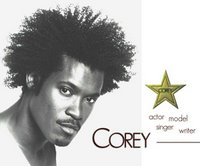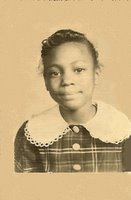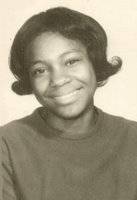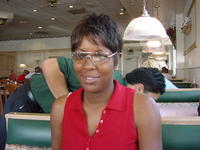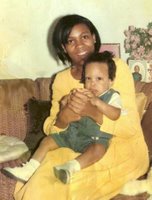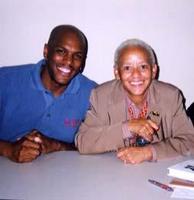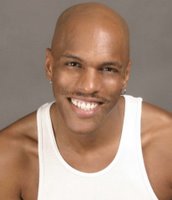Sunday, November 19, 2006
More Last Words
I know I'm supposed to be done unpacking, but my new spot isn't up yet and I had just had to get this out before I let the feeling pass unacknowledged.
The music industry has suffered a deep loss in the past week of which it will not soon recover and though he was a giant, I'm not referring to Gerald Levert.

I first became of Ruth Brown when I was about 12 or 13 years old. It was quite by accident. I was thumbing through the dusty bins of our neighborhood record store and ran across a double album from Mercury Records that showcased it's hottest artists of the fifties and sixties. It was a jazz and blues compilation that, little did I know, would shape my taste in music. I actually bought it because my great aunt Sarah loved Dinah Washington and I thought she would enjoy the recording of Salty Papa Blues. I'd never heard it before, but got it anyway just to please my auntie.
Ruth Brown's rendition of Shake A Hand began one of the sides and it quickly became one of my favorite songs. I actually did my own rendition in my very first cabaret performance. Ruth delivered that song like a directive. She told of the importance of greeting and touching your fellow man and how much better you would feel for doing it. For years it was the only thing I knew that she did. Around that same time I became engrossed in Sarah Vaughan and she became my obsession, but I never forgot about Miss. Brown.
When I became aware of Ruth Brown again it was for her performance in the John Water's film, Hairspray. She played the role of Motor Mouth Maybelle, a Baltimore disc jockey who hosted a dance show for black kids who couldn't appear on the Corny Collins Show because of the segregation of that era. In a display of civil rights activism, Brown's character, along with her fans desegregated the Collins show, making it possible for black and white youth to dance together in Baltimore.
In real life Brown fought an equally important battle for the rights of recording artists. While making a living cleaning houses, she embarked on a mission to reclaim unpaid royalties from Atlantic Records, often called "The House Ruth Built," because of the string of Billboard top-ten hits she recorded for the label in the fifties. Her fight not only recouped losses for herself, but those of other artists who had been swindled. Her effort led to the formation of the Rhythm & Blues Foundation, a Philadelphia-based nonprofit dedicated to providing financial and medical assistance, as well as historical and cultural preservation of the musical genre.
Along the way Brown emerged from an impoverished existence to receive Tony and Grammy Awards, but more importantly she lived to see how her contributions impacted the music industry and helped shape the careers of countless artists. Miss. Brown symbolizes so much for me, but I believe the most important thing is the humanity of artists. I used to believe that all artists were rewarded for their talent and never struggled, but then I grew up and realized that they too are subjected to life.
Her earthly presence will be missed, but if I ever get my hands on a turntable, I will be spinning Shake A Hand until my neighbors scream at me to stop.
Posted by Rodney ::
8:09 AM ::
3 Comments:
 
Post or view comments
---------------------------------------------
|











